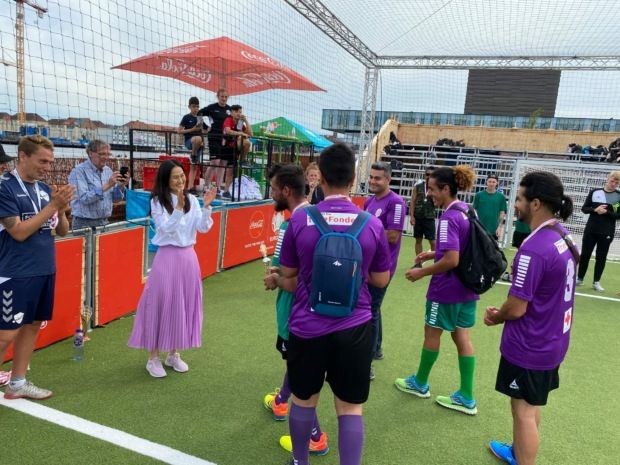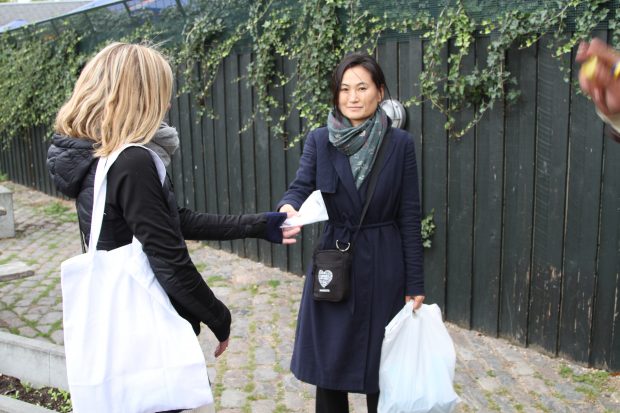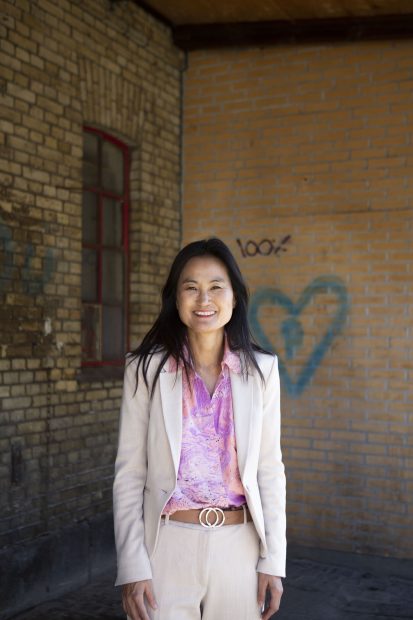News
Local Election 2021: Mia looks to international community for four more years
This article is more than 4 years old.

Mia Nyegaard is the new culture mayor
Mia Nyegaard
Running in: Copenhagen
Party: Radikale
Age: 47
Copenhagen’s mayor for social issues over the past four years, Nyegaard has worked in in London, Brussels, Malmö and is the deputy chairman of the board in Copenhagen Capacity and is the lead candidate for Radikale party in the city. CPH Post caught up with her ahead of the election.
How do you think the role of the international resident in Copenhagen has changed and why should they vote?
Copenhagen has become a more international city that strives to attract companies and talent from abroad. It has become easier to come to Copenhagen and interact in everyday life – getting your kids into schools and daycare etc. So voting is important, since it gives international residents a chance to have a say over their lives and how their taxes are spent. Also, I’m a bit old fashioned and I believe that it is one’s duty to vote to keep our democracy thriving. Utilising your vote is not only important but also your way of having a say when it comes to your everyday life.
Why do you think you would appeal to the international community?
I have been an expat myself and know how hard it can be to get your life up and running in new surroundings. Hence, I strive to support the international agendas in our city – I’m on the board of Copenhagen Capacity and work to make Copenhagen even more international than it is today.
You are Copenhagen’s mayor for social issues following a highly successful election in 2017. What are some of the initiatives that you are most proud to have ushered in during your tenure at City Hall?
I’m so proud that we as a party have taken responsibility for Copenhagen by participating in budget negotiations every year for the last four years. When it comes to the social administration, I’m proud that we have secured more money being prioritised in areas that have been structurally under budgeted for years. We have stopped the bleeding and started investing in some of the most marginalised people. Copenhagen may be one of the most liveable cities in the world, but with liveability comes responsibility. There is still much to be done, but we are on the right track.
One of your key election points is sustainability and the green transition. Can you tell us a little bit about what your plans are with that in the coming four years?
The green transition is paramount for our future city. We need to think sustainability in everything we do by looking into green procurement specifications. We should look into a carbon tax, support green mobility and lots more.
Another central aspect of your election platform is infrastructure. Considering that Copenhagen continues to grow in population, what are some of the solutions that could alleviate the challenges the city is facing?
We would like to see the city connected through even more metro or Bus Rapid Transport (BRT) and better bike infrastructure to encourage more people to use public transport and bicycles instead of cars. We would like to see road pricing used as a tool to regulate traffic, however that is for Parliament to decide.
You have a long track record of working to improve conditions for the vulnerable and less fortunate. Is that an area you will continue to focus on?
Yes I always have, and will continue to, fight for those who have the least. I believe that a society should be judged on how it treats its most vulnerable. Also, I don’t believe we will have climate justice without social justice and I want Copenhagen to be a green city in social balance
Has your background helped prepare/help you for your role as a local politician?
When I studied I worked four years as a social worker in a housing facility for people with mental and physical disabilities and I think that the job has prepared me and helped me more than any other job I’ve held. Also having been the managing director of a chocolate factory has helped me to know that I need to focus on operation/execution and budget to succeed in any organisation.
You’ve been a member of Radikale for over two decades. What initially drew you to local politics and Radikale as a party?
To me local politics is where you get to influence the everyday life of people and that to me is important. And what drew me to Radikale – the social-liberal rights-based aspect and international outlook of the party. I like that my party is a centre/centre left party because I believe that a country and a city should be governed by bridging parties to find the middle ground instead of letting the extreme left- or right-wing parties pull society too much to one side of the political spectrum.













































